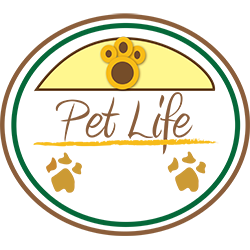
How to deal with pet grief and loss
The loss of any pet is often a profoundly distressing event, often likened to the loss of a dear family member. Our pets give us unconditional love, companionship, and joy, thus their passing can leave an indelible mark in our hearts. This article post aims to provide insight into the complex emotions surrounding pet grief and offer practical strategies to cope with this profound loss.
Understanding Pet Grief
Grief is a deeply personal, non-linear process. It's essential to understand that everyone experiences pet loss differently, depending on various factors including the bond with the pet, personal coping mechanisms, and surrounding social support. Pet grief often involves stages of denial, anger, bargaining, depression, and eventually acceptance, mirroring the well-known stages of human bereavement.
Feeling intense sorrow, emptiness, and confusion are common reactions. You may experience loss of appetite, difficulty sleeping, or incessant thoughts about your pet. All these responses are completely normal and are a part of the grieving process. Society often underestimates the impact of pet loss, which can make the grieving process even harder. People may expect you to "get over it" quickly, but remember, it's your grief, your process, and there's no set timeline for healing.
Tips for Dealing with Pet Grief
- Allow Yourself to Grieve
Try and give yourself permission to feel all the emotions that come with the loss. Suppressing your feelings can prolong the grieving process and lead to emotional distress. Cry if you need to; it's a healthy emotional release. Write in a journal, express your feelings through art, or talk about your pet with a loved one—doing so can be a cathartic release of your pent-up emotions.
- Seek Support
Often, those who have not experienced a pet's loss might not fully understand your pain. Reach out to those who do—friends who have pets, pet loss support groups, or online communities. You're not alone in your grief, and sharing your experience with others can provide comfort and understanding.
- Consider Professional Help
If your grief feels overwhelming and affects your ability to function, don't hesitate to seek professional help. A mental health professional, preferably someone specializing in grief and bereavement, can provide you with coping strategies and therapeutic approaches to manage your grief.
- Celebrate Your Pet's Life
Remembering the joy and love your pet brought into your life can be a positive step towards healing. There are numerous ways to commemorate your pet. You can create a scrapbook of their photos, plant a tree in their memory, or even write a letter to your pet, expressing your love and the lessons they taught you. These acts can provide comfort and closure.
- Maintain Routine
After losing a pet, the silence at home and the void in your daily routine can feel unbearable. Maintain as much of your normal daily routines as possible. This could include going for a daily walk, even if it was something you used to do with your pet. Routine can offer a sense of normality and provide a constructive diversion.
- Take Care of Your Physical Health
Grief can take a significant toll on your physical health. Make sure you're getting enough sleep, eating nutritious meals, and exercising regularly. Physical health is strongly linked with mental well-being.
- Consider a Memorial Ritual
A memorial ritual can provide closure and a chance to say a final goodbye. This could be a small ceremony in your backyard, a quiet moment by a favorite park or walk route, or even a formal pet memorial service.
When to Get Another Pet
A common question in coping with pet loss is, "When should I get another pet?" The answer is deeply personal and varies for everyone. Some people might feel ready to welcome a new pet into their lives soon after the loss, while others may need more time. It's crucial to ensure you're not trying to replace the lost pet or fill the void too hastily.
Conclusion
The loss of your pet is an emotionally challenging experience. It's crucial to understand that pet grief is real, valid, and deserves recognition and respect. The process may be slow and often painful, but it's vital to remember that with time and the right coping strategies, healing is attainable.
In the words of Anatole France, "Until one has loved an animal, a part of one's soul remains unawakened." Your cherished pet has touched your soul and left a permanent mark. As you navigate through this grief journey, remember the love, lessons, and joy your pet brought into your life. This perspective can guide you toward healing and eventually finding peace with your loss.
- Choosing a selection results in a full page refresh.












